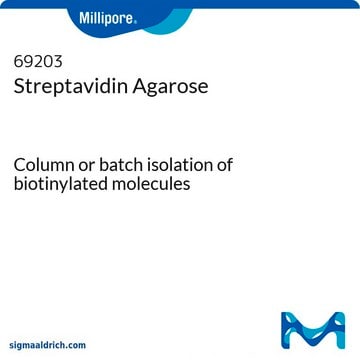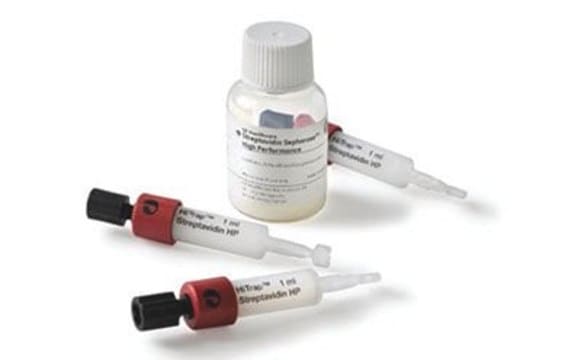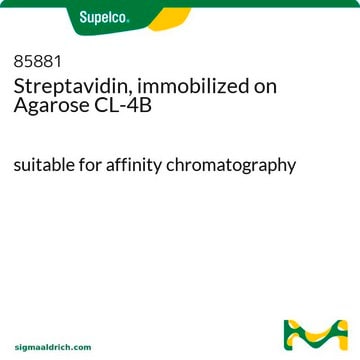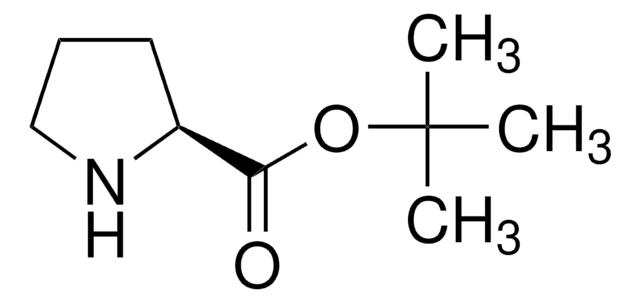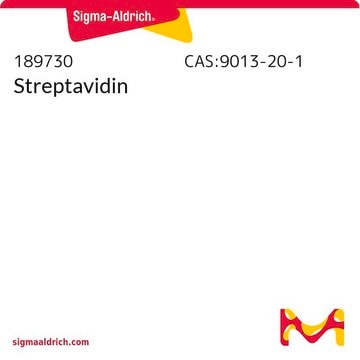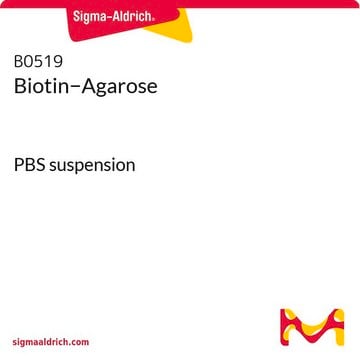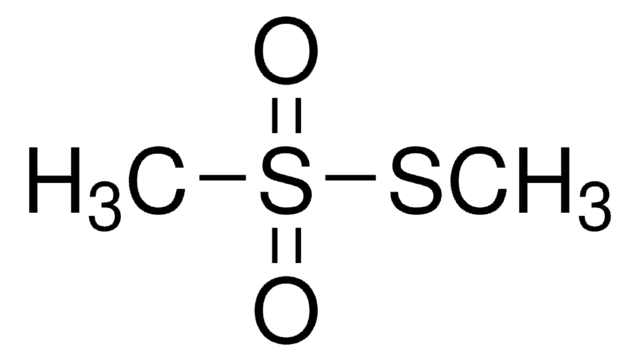S1638
Streptavidin−Agarose from Streptomyces avidinii
buffered aqueous suspension
Synonyme(s) :
streptavidin agarose beads, streptavidin agarose resin
About This Item
Produits recommandés
Forme
buffered aqueous suspension
Ampleur du marquage
≥1 mg per mL
Technique(s)
affinity chromatography: suitable
Matrice
4% beaded agarose
Activation de la matrice
cyanogen bromide
Fixation de matrice
amino
Espaceur de matrice
7 atoms
Capacité
≥15 μg/mL binding capacity (biotin)
Température de stockage
2-8°C
Application
- to pull down biotinylated cell surface proteins during the quantification of plasma membrane transforming growth factor β (TGFβ) receptor II (TβRII) and Tβ
- RII internalization
- in biotinylated miRNA pull-down assay; as secondary antibodies in immunoprecipitation
Actions biochimiques/physiologiques
Forme physique
Code de la classe de stockage
10 - Combustible liquids
Point d'éclair (°F)
Not applicable
Point d'éclair (°C)
Not applicable
Certificats d'analyse (COA)
Recherchez un Certificats d'analyse (COA) en saisissant le numéro de lot du produit. Les numéros de lot figurent sur l'étiquette du produit après les mots "Lot" ou "Batch".
Déjà en possession de ce produit ?
Retrouvez la documentation relative aux produits que vous avez récemment achetés dans la Bibliothèque de documents.
Les clients ont également consulté
Contenu apparenté
Tests, réactifs et protocoles permettant d'étudier les interactions protéines/protéines in vitro par différentes méthodes : pull-down ou GST pull-down, purification par affinité en tandem (TAP pour "Tandem Affinity Purification") et co-immunoprécipitation.
Tests, réactifs et protocoles permettant d'étudier les interactions protéines/protéines in vitro par différentes méthodes : pull-down ou GST pull-down, purification par affinité en tandem (TAP pour "Tandem Affinity Purification") et co-immunoprécipitation.
Tests, réactifs et protocoles permettant d'étudier les interactions protéines/protéines in vitro par différentes méthodes : pull-down ou GST pull-down, purification par affinité en tandem (TAP pour "Tandem Affinity Purification") et co-immunoprécipitation.
Investigate in vitro protein-protein interactions with pull-down assays, utilizing affinity, GST pull-down, TAP, and co-immunoprecipitation methods.
Notre équipe de scientifiques dispose d'une expérience dans tous les secteurs de la recherche, notamment en sciences de la vie, science des matériaux, synthèse chimique, chromatographie, analyse et dans de nombreux autres domaines..
Contacter notre Service technique